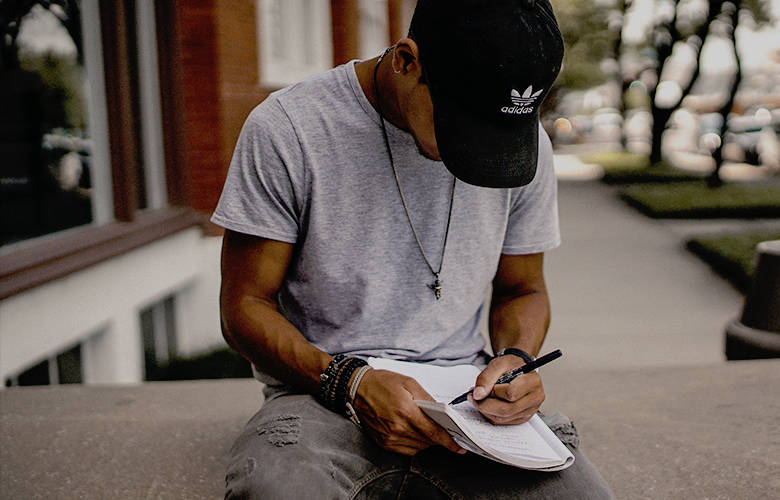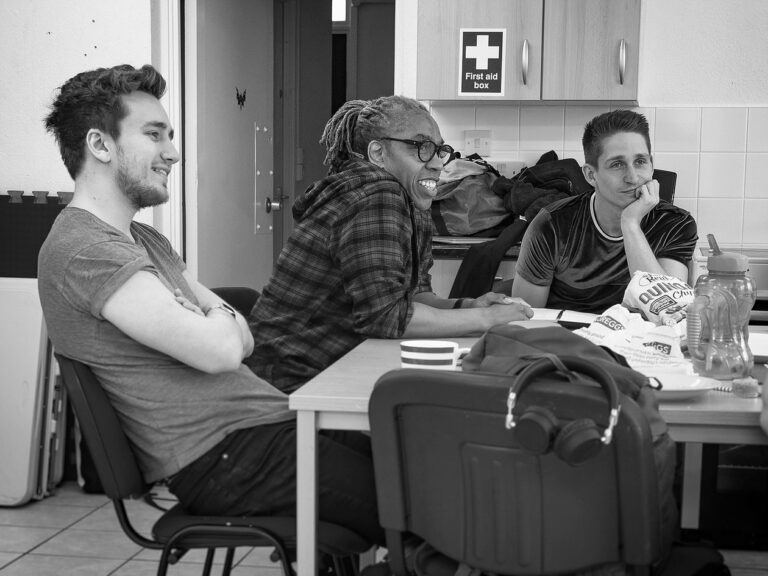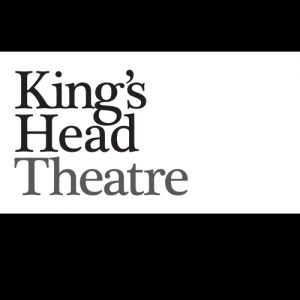
I’ve always been jealous of assistant directors. They get to be a sponge in the rehearsal room – soaking up all the knowledge of the director. I’ve been assisting Rikki Beadle-Blair on Undetectable and here are 5 things he does in the room that I’m going to steal for my own process:
The first week was spent on table work – sat around reading through the play and asking questions. From my experience, directors will usually follow along with the script at this stagemaking notes. Instead, Rikki closes his eyes and listens to the play. I can count on my hands the amount of times he has looked at his script in rehearsals. Right from the start of the process, he places himself firmly in the shoes of the audience – experiencing each line as it will be spoken.
This one is simple but really effective. Rikki brings in food to share every day of rehearsal. Each day the table is strewn with hummus crisps, fruit and biscuits for us all to eat at our pleasure. I can’t quite describe why, but there is something just so nice and communal about sharing food that brings everyone together.
Conversations in the room will move seamlessly from the play, to the world the play is speaking to. We reflect and question how the themes of the play permeate our own lives and the people around us. We talk about gay culture, we tell stories and give anecdotes – as we return to the text itself, these conversations instill in everyone a feeling of responsibility to deliver on the questions and messages in the play.

I mentioned in my last blog that each rehearsal begins with a run up to Primrose Hill followed by an intense physical warm up of press ups, lunges and squats. Each warm up lasts for roughly 30 minutes each morning. I realised recently that during this time we never talk about the play or the process. It’s a chance to catch up, to talk about ourselves, just to chat really. The warm ups prepare us for the work we are going to do and the conversation allows us to catch our breath before we begin.
At the start of the process, Rikki hands out eight A4 pages of questions to the actors to answer in character. These questions range from ‘Where do you live?’ to ‘What’s something you would like to give a second try to?’ and ‘What’s a question you can’t answer?’. I’ve seen questionnaires being used in rehearsals rooms before, but interestingly, Rikki doesn’t ask to see the actors’ answers until much later in the process after the play has been blocked. He’s interested in process, of how the actors came to those answers and how their answers have changed as the work on the play has progressed.
Also By Kings Head Theatre:
Fringe Theatre London: Executive Assistant Rohan Perumatantri
Beauty And The Beast: A Gender Swap Performance


The King’s Head Theatre was established in 1970. Passionate about championing ethically produced fringe theatre, we are known for our challenging work and support of young artists. Last year 116,151 audience members saw a show of ours: 44,607 at our 110-seater home on Upper Street and 71,544 elsewhere. At our home in Islington we had 774 performances last year of 95 different shows. We are committed to fighting prejudice through the work we stage, the artists and staff we work with and by producing work for minority audience groups. We believe in fair pay for all on the fringe and create accessible routes for early career artists to stage their work; work we are passionate about. Last year we announced the theatre is on the move. Subject to a fundraising campaign, the King’s Head Theatre will move into a custom-built space in the heart of Islington Square, directly behind its current home securing the future of the venue for generations to come.
Read Full Profile© 2021 TheatreArtLife. All rights reserved.

Thank you so much for reading, but you have now reached your free article limit for this month.
Our contributors are currently writing more articles for you to enjoy.
To keep reading, all you have to do is become a subscriber and then you can read unlimited articles anytime.
Your investment will help us continue to ignite connections across the globe in live entertainment and build this community for industry professionals.